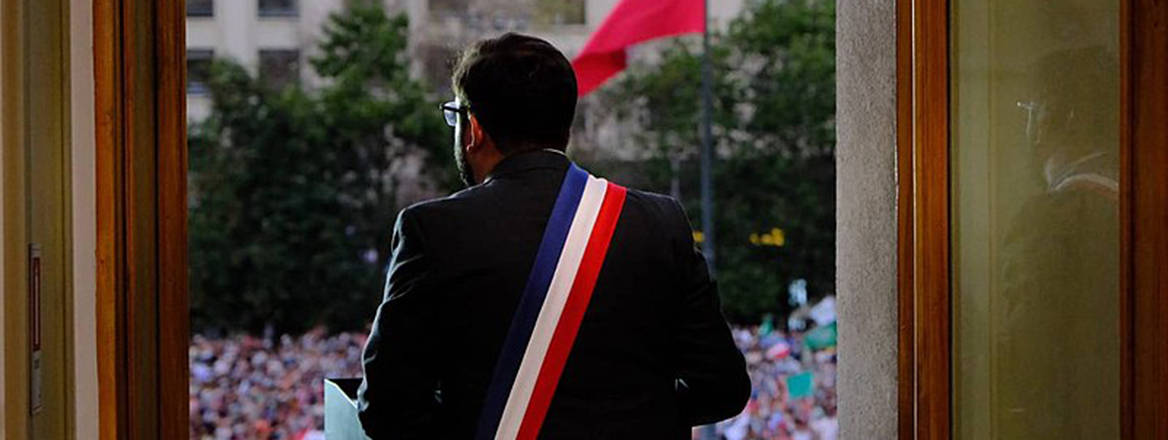Is Chile’s Constitutional Revamp Braced for Defeat?
A newly proposed Chilean ‘Magna Carta’ departs from the 1980 constitution conceived in the Pinochet era. Its progressive ideas may also be its worst enemy.
Chileans will soon descend on the voting booths to decide whether a recently drafted constitutional text will become their new Magna Carta. Sunday’s referendum marks the culmination of a historical juncture in this Southern Cone democracy, which began in 2020 when more than three-quarters of the population voted in favour of a constitutional rewriting. Despite initial hopes, there are fears that the people will reject the new draft.
President Gabriel Boric, a 36-year-old leftist reformer who thrives on generational shift, has shown his support for the new draft, which was conceived by a constitutional convention in which one in three delegates had no partisan affiliation. However, the convention leaned overall to the left, and the draft calls for more state intervention in social policy, introducing direct democracy mechanisms, and eliminating the bicameral legislature and replacing it with a single lower chamber together with another for regional laws.
Over the last six months the electorate has remained resolute, with around 38% saying they will approve the draft versus 48% indicating the opposite. Support for the reject option is strong among older groups, with 50% of those aged 40 and over saying they will reject the new draft. Among those identifying with the right, only 6% say they will vote to approve, versus 75% for those on the left.
Boric advocates replacing the 1980 constitution, which was conceived during General Augusto Pinochet’s dictatorship and partially reformed in 2005 when military privileges and other remnants of authoritarianism were eliminated. The Pinochet constitution favours free markets running the economy and providing essential services, and is deemed one of the leading causes of income inequality in Chile.
A negative result will prove challenging for Boric, who has only been in the top job for six months after capitalising on Chile’s nationwide wave of discontent which erupted in late 2019. Much of his policy programme rests on advancing key controversial themes in the new draft, notably on the state’s relationship with the environment, social rights, equality, decentralisation, recognition of minorities, and Chile’s plurinational character.
What if the Process Fails?
In the last few weeks, Boric has campaigned for the idea that there should be a political agreement for a second constitutional draft. ‘If the plan is rejected, what will happen is that we will have to prolong the process for another year and a half, where everything will have to be discussed from the beginning’, said Boric in mid-July in light of a possible defeat.
For supporters of the text, its multicultural nature is a long-needed reparation and acknowledgement of Chile’s mixed history of European colonisers and native peoples
Admittedly, launching a second convention would require a comprehensive multi-party agreement in Congress, much like when the political establishment yielded to social demands during the ‘Chilean Spring’, which allowed the current assembly to be installed.
A less bureaucratic solution that would satisfy some camps is for lawmakers to lower the current quorum needed for constitutional reform, fixing a controversial deadlock in the Pinochet constitution. However, Boric is against revamping the Pinochet charter as a better-than-nothing option. 74% of Chileans agree with him and believe that if reject wins, there should be a new process to write a fresh constitution.
Problematic Relationship
The convention delegates chose Elisa Loncón, a university professor and one of Time magazine’s 100 most influential people of 2021, to chair the assembly in an unprecedented move for inclusivity. Under her leadership, the draft text became the first to recognise Chile’s pre-Hispanic nations, protecting their rights, language and symbols while providing them with regional autonomy and indigenous justice.
For supporters of the text, its multicultural nature is a long-needed reparation and acknowledgement of Chile’s mixed history of European colonisers and native peoples. For its opponents, the newfound autonomy for indigenous peoples gives them unaccountable privileges. Among those who plan to reject the text, 24% consider the plurinational state principle of the draft constitution to be the most worrying.
Whatever the referendum’s results, the indigenous question will remain a hot topic.
The state’s strained relations with its indigenous peoples have reached a tipping point in light of unsolved problems relating to rights recognition and land ownership. Armed violence and arson attacks against private estates and businesses in the southern region of Araucanía have spiked. Meanwhile, successive governments have reacted by reinforcing the militarised police presence, which has proven not to be a silver bullet.
Geopolitics: A Missed Opportunity
The draft text sets Chile’s geopolitical priorities as strictly oriented towards the Americas and the Caribbean, which would make sense for a smaller country with lesser foreign policy aspirations. Instead, the text could have reflected on the country’s soft power capital and active global diplomacy oriented towards other parts of the world.
A defeat will hurt Boric's government, and his ruling coalition will be seen as incapable of carrying the votes needed
In the past, Chileans have led international efforts on climate change (Ricardo Lagos is a former special envoy) and human rights (Michelle Bachelet was until recently a UN commissioner), which transcend the remits of the Western hemisphere.
In light of today’s global issues such as sustainable development and digital transformation, a theme-driven diplomacy seems a better option, especially as these and other hot topics are discussed among decision-makers internationally. Chile’s privileged position facing the Pacific Ocean, for instance, is an invaluable resource connecting the country to the rapid technological developments of the Asia-Pacific. Chile’s territorial expansion in Antarctica is an example of active scientific and military governance beyond the regional frontier.
Looking Ahead
Given the pessimistic mood in the air, a heavy loss should not surprise Boric. He has had plenty of time to recalibrate his next steps. A defeat will hurt his government, and his ruling coalition will be seen as incapable of carrying the votes needed. There are no guarantees that a second constitutional process will be successful either.
At least some in the fractured and ill-esteemed political establishment will earn a few wins, chiefly those on the centre right who have opposed the draft and those on the centre left who decided to detach from the apruebo conglomerate ahead of the referendum.
Finding their new identity has proven difficult for Chileans, but the desire for change is clear. Many want a political system in which economic and social values are supported by at least some common hopes for equality, justice and growth. Maybe this just wasn’t the right way to package it all together.
The views expressed in this Commentary are the author’s, and do not represent those of RUSI or any other institution.
Have an idea for a Commentary you’d like to write for us? Send a short pitch to commentaries@rusi.org and we’ll get back to you if it fits into our research interests. Full guidelines for contributors can be found here.
WRITTEN BY
Dr Carlos Solar
Senior Research Fellow, Latin American Security
International Security
- Jim McLeanMedia Relations Manager+44 (0)7917 373 069JimMc@rusi.org


